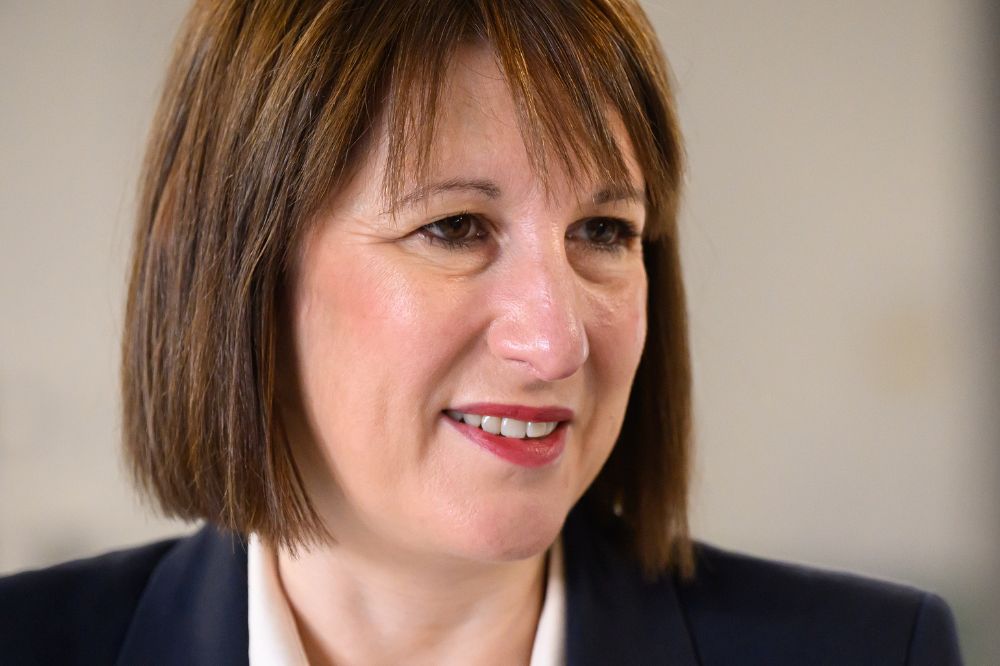Budget market reaction ‘very different’ from Liz Truss turmoil, UK minister insists

The UK is in a “very different world” compared to the turmoil which followed Liz Truss’s economic plans, a minister has said as the Government seeks to quell post-Budget market jitters.
The scale of extra borrowing in Rachel Reeves’ Budget – around £32 billion a year on average – saw yields on government bonds increase as the market responded to the Chancellor’s plans.
The value of the pound has also fallen against the dollar following Labour’s first Budget in more than 14 years.
But Darren Jones, Ms Reeves deputy at the Treasury, told Sky News that “markets always respond to budgets in the normal way”.
“I think we’ve all got PTSD from Liz Truss,” he added.
Contrast
The Treasury minister compared Ms Truss’s decision to sack the Treasury’s chief official and snub an analysis of her spending by fiscal watchdog the Office for Budget Responsibility (OBR), with Labour’s plans.
He added: “Completely different in contrast to now: We’ve got verified reports from the independent Office for Budget Responsibility that say we meet our fiscal rules earlier than had been planned originally, 2027-2028, that those tough fiscal rules means there is a fiscal consolidation and that strong approach to public spending.
“We’re in a very, very different world.”
Budget tax rise
The senior minister conceded that the headline Budget tax rise in national insurance contributions (NICs) for employers would impact “working people”, following a similar admission by Ms Reeves.
The £25.7 billion change to employers’ NICs is expected to raise around £16.1 billion by 2029/30 as firms curb wage rises, cut hours and reduce profits – while public sector employers get compensation in their budgets for the change.
Asked by Sky News if it would impact workers, Mr Jones said: “Yes, but the question in the manifesto, the promise in the manifesto, was not to increase the rate of tax that employees pay in their payslip.
“It says that we make a promise to working people, that’s people who go to work and get a payslip, that we will not increase income tax or national insurance.”
The Resolution Foundation economic think tank has branded the increase a “tax on working people”, and said it will show up in their payslips in slower growth.
Forecast
The OBR forecasts that by 2026-27, some 76% of the total cost of the NICs increase is passed on through lower real wages – a combination of a squeeze on pay rises and increased prices.
The measure could also lead to the equivalent of around 50,000 average-hour jobs being lost, the watchdog said.
Mr Jones also admitted to broadcasters that GPs and care homes will have to pay the NICs increase.
But he told BBC Breakfast some GPs “may end up in a better position than they were in before” because of extra investment across the NHS.
Despite an endorsement from the International Monetary Fund (IMF), financial markets have not been reassured by the Budget.
The yield – or interest rate – on a 10-year gilt, an indicator for the cost of state borrowing, hit 4.568% on Thursday afternoon, the highest point since August 2023, while the pound also weakened against the dollar.
Gareth Davies, the shadow exchequer secretary to the Treasury, told Sky News that market moves in the wake of the Budget are “embarrassing” for the Chancellor.
He said: “We have a new Labour government who promised change, who promised to stabilise markets, and what we saw yesterday was not a stable market environment.
“I think that is embarrassing for Rachel Reeves.”
Elsewhere, the Chancellor has welcomed a £50 million investment by medical supplier Accord into its Newcastle factory, which has been backed by the Government.
Ms Reeves will visit the company, one of the biggest chemotherapy drug suppliers in Europe, on Friday.
Support our Nation today
For the price of a cup of coffee a month you can help us create an independent, not-for-profit, national news service for the people of Wales, by the people of Wales.






It seems the markets are running the UK now not the government. Natural consequence of globalisation?
No, it is a natural consequence of racking up so much debt. The government owes the market close to three trillion pounds – I think the market should expect some influence in return.
The bigger question is why successive governments have borrowed so much money. The answer is to feed a public sector that gets bigger every year, consumes more cash every year, becomes less efficient every year and delivers poorer services every year.
One big problem is the cognitive dissonance infecting the Cons. They’re convinced we don’t need public services so focus their efforts on attacking them only to wonder why the prisons are full, ambulances take days to arrive, millions are too ill to work, the courts are backlogged, the borders don’t work and the armed forces can’t defend anyone. If they were genuinely a party of economic competence they’d be obsessed with delivering public service that ran like a well oiled machine.
This is like pleading in court after murdering someone, saying; at least I’m not like Hitler or Putin!
Truss sent interests rates through the roof. Reeves’ damage thus far is not so dramatic but it has arrested and reversed the slight improvement as the work of the mad lettuce got corrected.
Much as I dislike these international money markets and banksters that inhabit so many of them our governments have surrendered themselves to their whims for decades. In 2008 many governments had the chance to decapitate the snakes but chose instead to protect them and reinforce the “too big to fail” fallacy.
Absolutely still tied by their purse strings